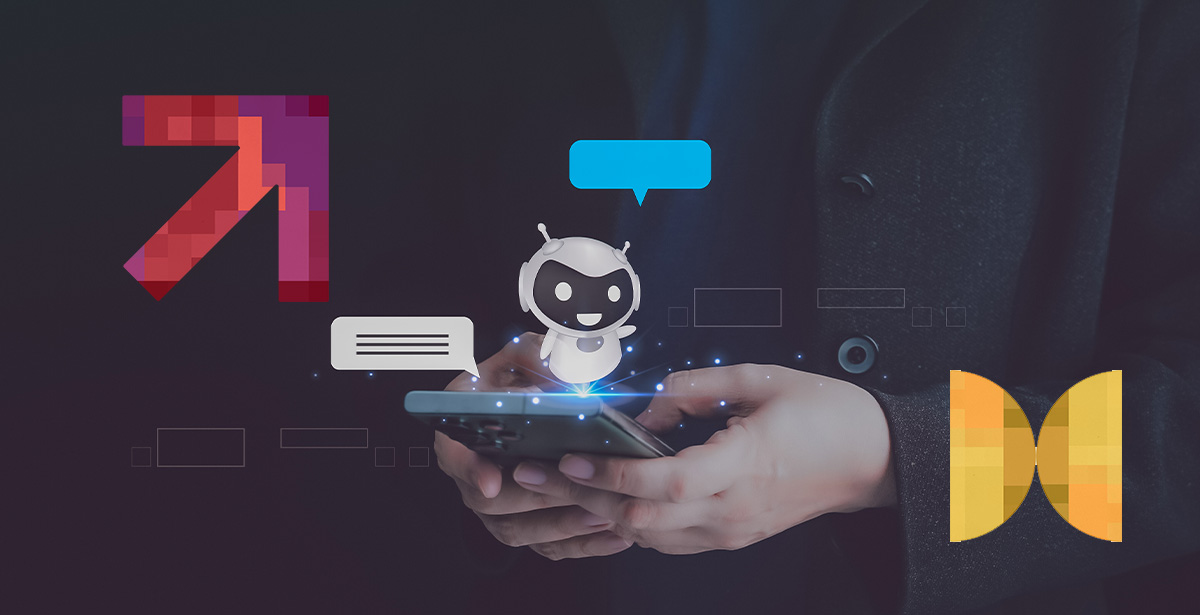10 Ways AI is Transforming Developing Custom Software

Developing custom software without AI in 2025? That’s like showing up to a space race with a bicycle.
AI isn’t just helping developers, it’s outpacing them. Code that once took weeks is now generated in seconds. Testing, debugging, deployment – AI does it all, faster and smarter.
With AI now embedded in 92% of U.S. developers’ toolkits, the question isn’t if you should adopt AI, it’s how fast.
The Rise of AI in Software Development
AI technologies are reshaping the software development life cycle (SDLC) by accelerating time to market, enhancing product quality, and reducing costs. Technology can be embedded across all phases of SDLC, driving efficiency and innovation.
This, in turn, results in –
- Productivity Gains – According to McKinsey & Company, companies using AI in development report 20–50% productivity improvements. Especially in coding, debugging, and test automation.
- Smarter Decision-Making – AI helps teams make better decisions through predictive analytics, intelligent code suggestions, automated root-cause analysis, and smarter backlog prioritization.
- Improved Developer Experience – AI tools (e.g., code assistants) reduce cognitive load, speed up workflows, and increase developer satisfaction.
- Quicker Discovery of Opportunities – AI streamlines product discovery and validation by enabling rapid prototyping, automated testing, and data-driven decisions in developing custom software. This, in turn, reduces resource use, increases experiment volume, and minimizes bias in idea prioritization.
Embracing AI in the SDLC isn’t just about speed; it’s about unlocking new levels of creativity, adaptability, and competitive advantage in software development.
💡 Master the 5 Ws of customized software development – who, what, when, where, and why to craft custom software that perfectly fits your business needs.
The Uses of AI While Developing Custom Software
Creating tailored software solutions today is no longer a manual-intensive process. AI is fundamentally reshaping how modern applications are planned, built, and scaled.
1) Automation and Efficiency
AI is transforming the software development lifecycle by automating repetitive tasks that once consumed significant developer time. Technology reduces manual input while increasing development speed.
Tools like GitHub Copilot use LLMs to assist in writing functions, creating modules, and filling in logic gaps. This allows developers to focus on core architecture, system design, and business logic rather than low-level syntax or structure.
Moreover, AI accelerates debugging and auto-corrects syntax errors in real time. This drastically improves efficiency while maintaining consistency in coding standards.
2) Predictive Analytics
AI-driven predictive analytics provides actionable insights by analyzing historical project data and user behavior patterns. These insights help anticipate performance bottlenecks, code vulnerabilities, and deployment risks before they escalate.
By integrating such predictive capabilities into the development cycle, teams can adopt a proactive approach to maintenance, software customization, and feature planning. This enables faster releases and a more stable product.
3) Natural Language Processing (NLP)
NLP enables machines to understand and generate human language, which has huge implications for custom software interfaces. It powers voice assistants, intelligent search features, and chatbot interfaces that mimic human conversation.
NLP frameworks like spaCy and Hugging Face allow developers to add features like sentiment analysis, named entity recognition, or multilingual support into custom applications. This greatly enhances user experience and accessibility.
Developing Custom Software with these capabilities ensures that applications can interpret, respond, and evolve based on real-world human input.
💡 Knowing the right software development approach helps you align teams, manage risks, and deliver solutions that scale. Don’t start coding without it!
4) Personalization and Recommendation Systems
AI enables software to learn from user behavior and personalize the experience at scale. Recommendation engines analyze real-time interactions, purchase history, and preferences to deliver tailored content or suggestions.
This is especially important in industries like e-commerce, OTT platforms, and finance, where personalization drives engagement and conversions. AI’s ability to continuously refine these outputs make custom software for businesses smarter over time.
5) Machine Learning for Adaptive Intelligence
Creating custom software that’s embedded with machine learning models ensures it evolves over time based on data-driven insights. It adapts application behavior dynamically. For example, an app with this tech can customize dashboards or detect fraud.
This not only improves operational efficiency but also ensures the application stays relevant in changing environments. ML further gives custom software a long-term strategic edge.
6) Security and Fraud Detection
In developing custom software, AI-enhanced security solutions analyze massive volumes of behavioral data to detect anomalies in real time.
These systems use anomaly detection models and supervised learning to flag suspicious login patterns, API usage spikes, or unusual transaction flows.
AI models like isolation forests and neural networks are trained on threat intelligence datasets, allowing software to predict and mitigate zero-day exploits. This proactive security posture enables applications to evolve and resist novel attack vectors without manual patching.
💡 When developing applications for business, anticipate challenges early. Combine AI-driven tools with expert human oversight to streamline workflows, reduce risks, and deliver reliable, business-ready software faster.
7) Quality Assurance and Testing
AI-driven QA tools use model-based testing and reinforcement learning to simulate complex usage scenarios that manual testers might overlook. These tools prioritize high-risk test cases and apply adaptive testing based on code changes, ensuring wider test coverage.
Advanced tools like Testim and Functionize leverage AI to auto-generate and maintain test scripts that evolve with UI/UX changes. This reduces false positives in testing and ensures faster deployment cycles with minimal regressions.
Developing custom software that incorporates AI testing models not only ensures robustness but also maintains continuous improvement through historical learning.
8) User Experience
AI tracks user behavior at the micro-interaction level and adjusts workflows dynamically to improve usability. Using models trained on behavioral data, the system tailors content, recommends actions, and streamlines navigation for each user.
Technologies like ChatGPT and custom NLP engines allow applications to converse, solve queries, and even guide users through onboarding or troubleshooting. This not only enhances usability but also improves retention and time-to-value metrics.
9) Automated Documentation
Modern code intelligence platforms use Large Language Models (LLMs) to generate in-line comments, README files, and architecture documentation by parsing source code and commit history.
Tools like Codex and Mintlify integrate directly with IDEs, enabling live documentation updates as features evolve.
This auto-generated documentation supports smoother onboarding, fewer knowledge silos, and streamlined handoffs between distributed development teams. This, in turn, ensures that technical insights are preserved as the product scales.
10) Continuous Integration and Deployment (CI/CD)
AI enhances CI/CD pipelines by dynamically adjusting test priorities and deployment sequences based on historical build outcomes and risk assessment. It can identify flaky tests, anticipate build failures, and recommend pipeline optimizations.
Tools like CircleCI and Jenkins X now incorporate ML-driven anomaly detection and workload balancing for efficient resource utilization. Developing custom software with AI-powered CI/CD ensures faster and safer releases with consistent quality.
💡 Make the right choice of “outsourcing custom development” in the right way: choose a skilled AI-savvy team with clear goals and open communication.
Ready to Partner with the Best Custom Software Development Company?
DPL has mastered delivering AI-powered innovation in custom software development.
We combine advanced AI tools with tailored solutions, specifically for your business goals. From accelerating development speed to strengthening security and creating smarter user experiences, we ensure your software stays ahead of the competition.
Share your project details in the form below, and let’s start building the future of your custom software together.





